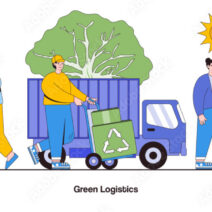The interplay between government actions and global warming is a multifaceted issue requiring a thorough examination. In recent decades, the ramifications of climate change have become increasingly visible, leading to a crescendo of concern worldwide. The question at the forefront of the climate crisis is: how do governments wield their authority to influence, mitigate, or exacerbate global warming? Through a robust analysis of political structures, policy-making, and international collaboration, we can unearth the critical role that governments play in navigating the treacherous waters of climate change.
Governments possess unparalleled capabilities to effect substantial change through legislation, regulatory frameworks, and financial incentives. By crafting environmental policies, they establish the groundwork for tackling greenhouse gas emissions—the primary culprits of climate change. However, the effectiveness of these policies hinges on the political will of leaders and their commitment to the environment. Ultimately, the extent of governmental impact is encapsulated in how priorities are set and resources are allocated.
One cannot ignore the dichotomy of state actors; while some governments are trailblazers in climate action, others languish in inaction, perpetuating environmental problems. For instance, countries such as Sweden, Denmark, and New Zealand have made remarkable strides in setting ambitious net-zero emissions targets and prioritizing renewable energy sources. These nations offer blueprints for how progressive policies can cultivate an eco-conscious economy. Conversely, nations like the United States, as witnessed in previous administrations, can retrogress in their climate commitments, leading to international disengagement and reputational fallout.
Moreover, a pivotal aspect of governmental influence on global warming lies in their role as international negotiators. The Paris Agreement, a landmark accord forged in 2015, exemplifies how collaborative endeavors can instigate monumental changes. Through this accord, nations commit to curbing their emissions and enhancing climate resilience. However, the success of such agreements is predicated on fiduciary accountability and political fortitude. When governments fail to uphold their promises, countries may spiral into a quagmire of climate despair, exacerbating resource depletion and environmental degradation.
To understand government efficacy in the climate crisis, it is essential to analyze the socio-economic factors at play. In many instances, political leaders are beholden to industries that prioritize profit over environmental stewardship. The fossil fuel industry, for instance, retains copious influence, leading to policies that favor short-term gains at the expense of long-term sustainability. The intertwining of politics and corporate interests often complicates the regulatory landscape, making it challenging for progressive legislation to prevail. Governments equipped with the vision to decouple from such vested interests can shift the paradigm toward a more regenerative economy.
Furthermore, local governance is indispensable in the climate change discourse. Municipalities are at the forefront of implementing environmental policies that resonate with their constituents. Cities like San Francisco and Vancouver have pioneered initiatives such as cap-and-trade programs and carbon offsets, showcasing the potency of grassroots movements. By enacting sustainable practices at the local level, these city governments serve as incubators for larger national and international models. Elected leaders who champion local climate action can galvanize communities, fostering a sense of agency and demonstrable change.
The advent of technology also plays a pivotal role in the relationship between governments and climate dynamics. Governments have the ability to spearhead innovation by investing in research and development for renewable energy technologies, carbon capture solutions, and sustainable agriculture practices. Accelerating the transition to a low-carbon economy is contingent upon institutional support for innovative startups and research initiatives that may redefine energy paradigms. In this light, the fusion of appropriate legislation and transformative technology can present a formidable strategy against climate change.
The urgency of addressing climate change cannot be overstated. Each increment of increased temperature has profound implications for global ecosystems, human health, and economic stability. Recognizing the existential threat posed by global warming compels governments to reassess their priorities. In the race against time, nations must pivot towards sustainable strategies and foster a culture of accountability, ensuring that their promises translate into tangible outcomes.
Furthermore, climate education infused into governmental policy can evoke a paradigm shift in public perception. A society enlightened about the realities of climate change can hold its leaders accountable, demanding proactive measures rather than reactive policies. Governments that invest in climate literacy initiatives not only empower citizens but also cultivate a collective ethos dedicated to environmental preservation.
In conclusion, the correlation between government action and global warming encompasses a confluence of leadership, accountability, and innovation. While certain countries have emerged as vanguards of environmental policy, others remain shackled by inertia and political machinations. Enhanced global cooperation, supported by local initiatives and technological advancements, can reshape the climate narrative. As the world grapples with the reverberations of climate change, governmental actions will be scrutinized—historical trends will be re-evaluated, promises may be challenged, and an enduring perspective shift may emerge. The question persists: will governments rise to the occasion and champion the fight against global warming, or will they falter in the face of an impending crisis? The answers to these inquiries are vital in determining the future of our planet.








